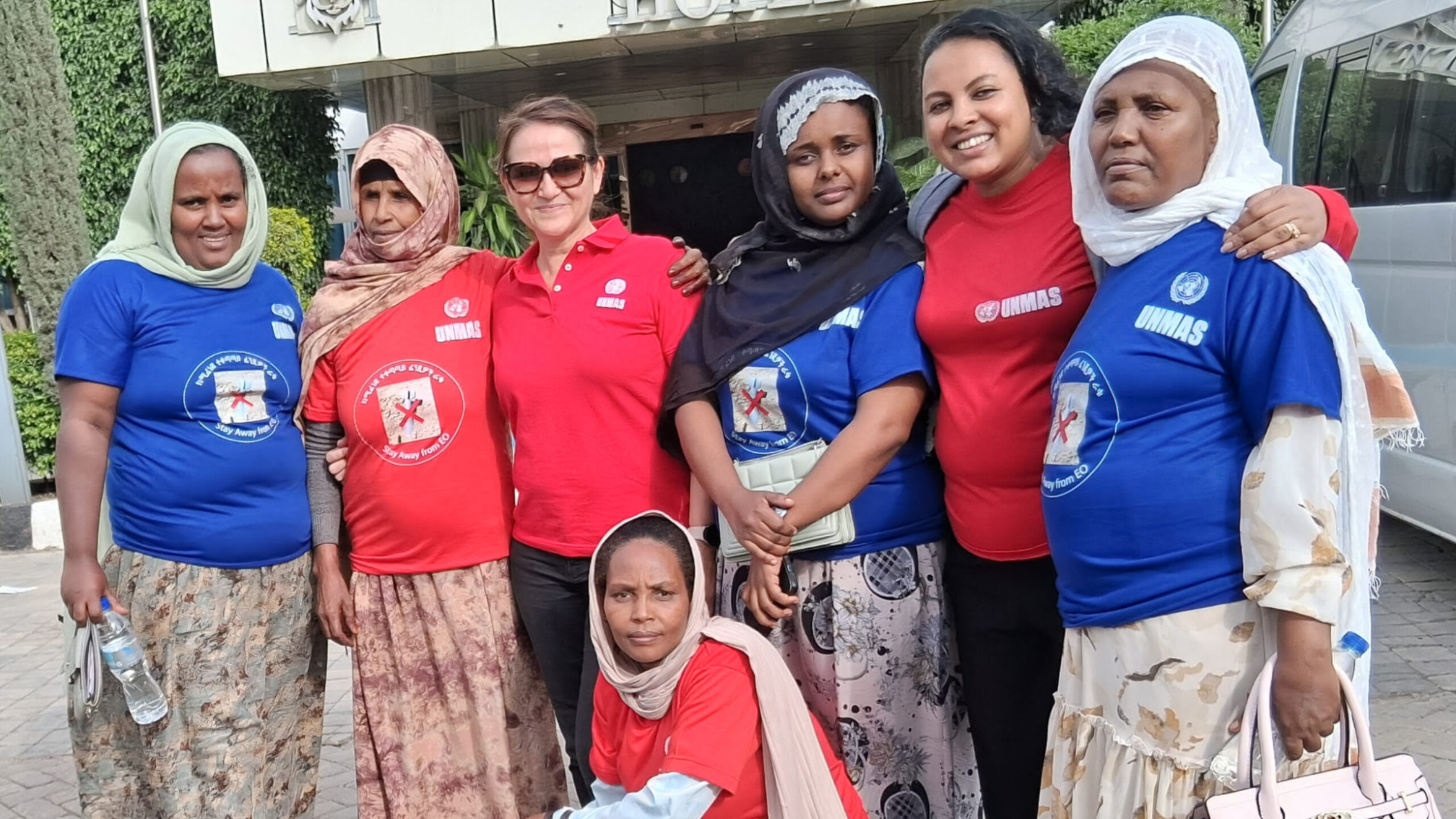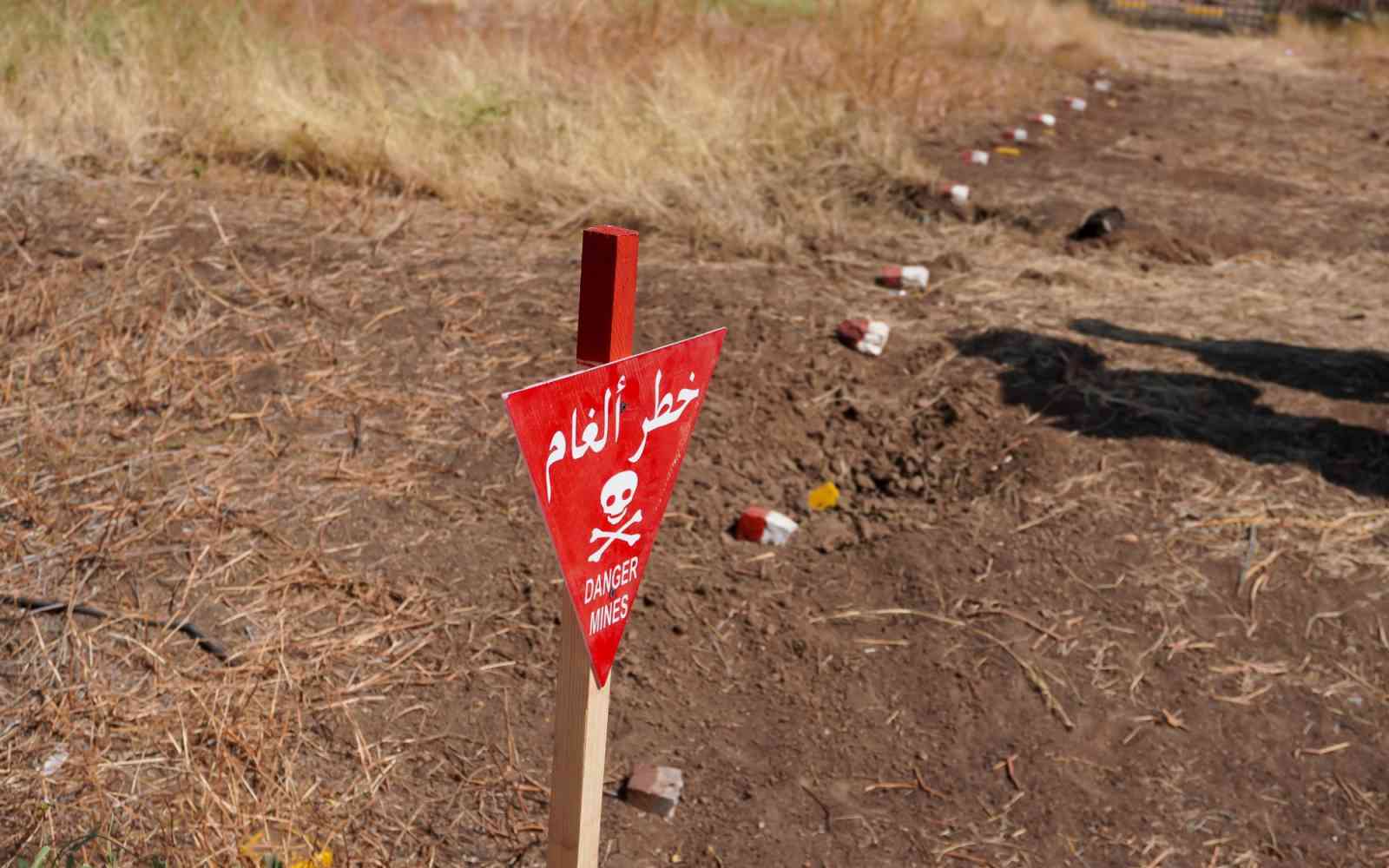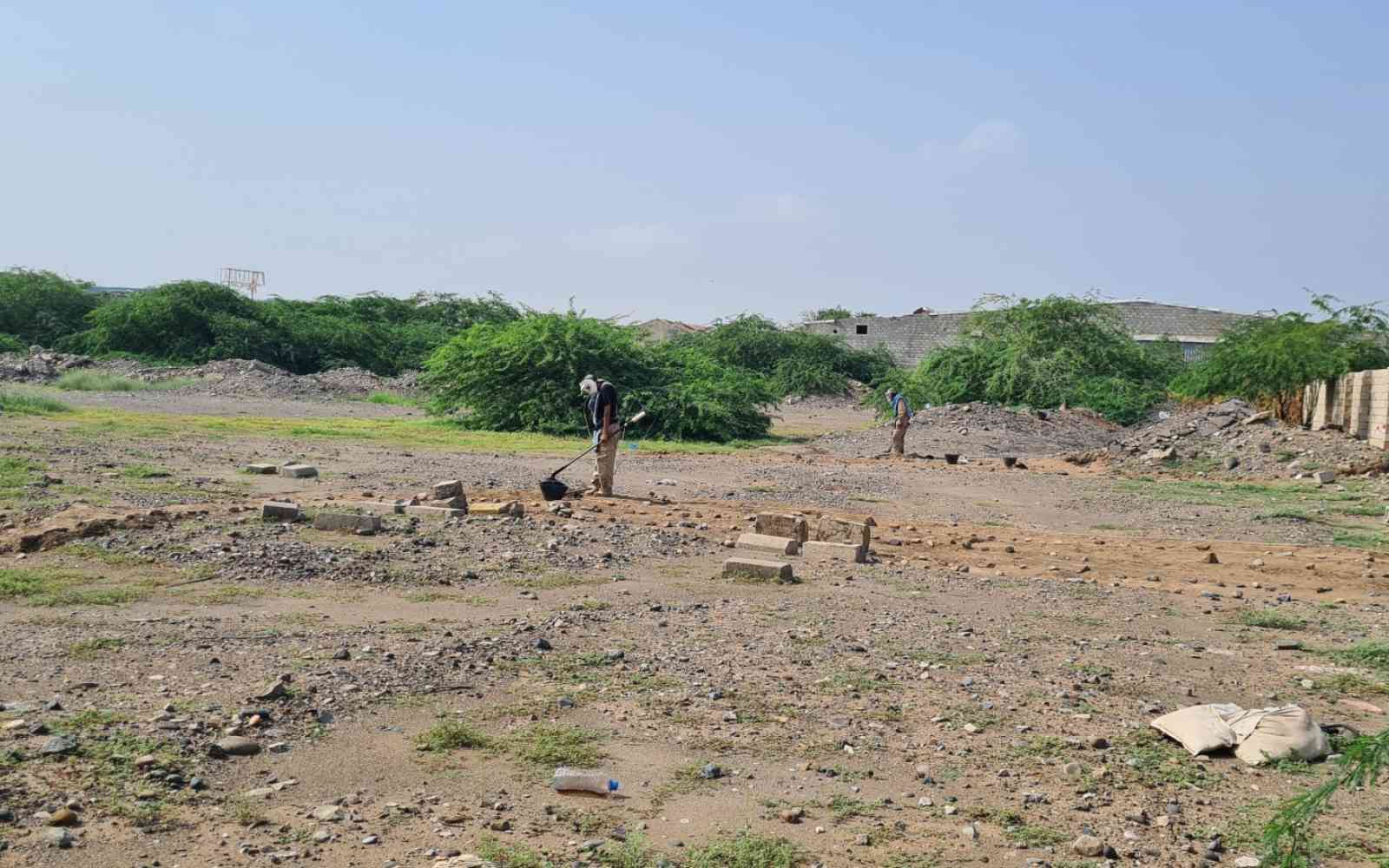The United Nations Office for Project Services (UNOPS)

Women at the forefront of peace and security
Twenty-five years after a landmark UN resolution to advance equal participation in peacebuilding, discover how women are playing a key role in peace and security efforts in conflict-affected communities.
Conflict has devastating and disproportionate impacts on women and girls. Yet, the very people most affected are often excluded from the processes and decisions intended to foster peace.
On 31 October 2000, the UN Security Council unanimously adopted Resolution 1325 (SCR 1325). This landmark resolution – known as the ‘Women, Peace and Security (WPS)’ agenda – was the first to recognize the essential role women play in conflict prevention and resolution, peacebuilding, and post-conflict reconstruction. It calls for women's equal participation in all peace and security efforts and urges special measures to protect them from gender-based violence.
Twenty-five years later, translating this resolution into tangible results remains a critical challenge.
To help turn ambitions into a reality, UNOPS works closely with the UN family, partners and communities to implement peace and security initiatives that are focused on creating a safer and more inclusive future for all. Mitigating the risk of landmines and other explosive remnants of war in communities recovering from conflict is often a crucial step in this process.
UNOPS Director of Peace and Security, Amir Omeragic, says that the leadership and unique perspectives that women and girls provide in mine action initiatives are key to achieving successful outcomes – and driving peace, inclusiveness and sustainable development.
"Women and girls play a critical role in mine action efforts: from improving the effectiveness of mine action programmes, to fostering community trust and engagement, to driving equality, they are key to creating the conditions needed to support sustainable post-conflict recovery," he says.
On the 25th anniversary of Resolution 1325, explore some of the ways UNOPS is working to advance equal participation in conflict peacebuilding efforts.
Women protecting lives in Amhara: The power of community focal points
In Ethiopia's Amhara region, where access for humanitarians is often restricted, protection and awareness rely on those within the community.
Through the Explosive Ordnance Risk Education (EORE) initiative, UNOPS trains Community Focal Points (CFPs), many of whom are women, to serve as local educators and protectors. This project, funded by the government of Denmark, empowers women as key actors in protecting their families, schools and villages from explosive hazards.
Among them is Hanna Zegeye, who became a CFP to keep her family and neighbors safe, and Chuchu, a school representative dedicated to reaching the next generation.
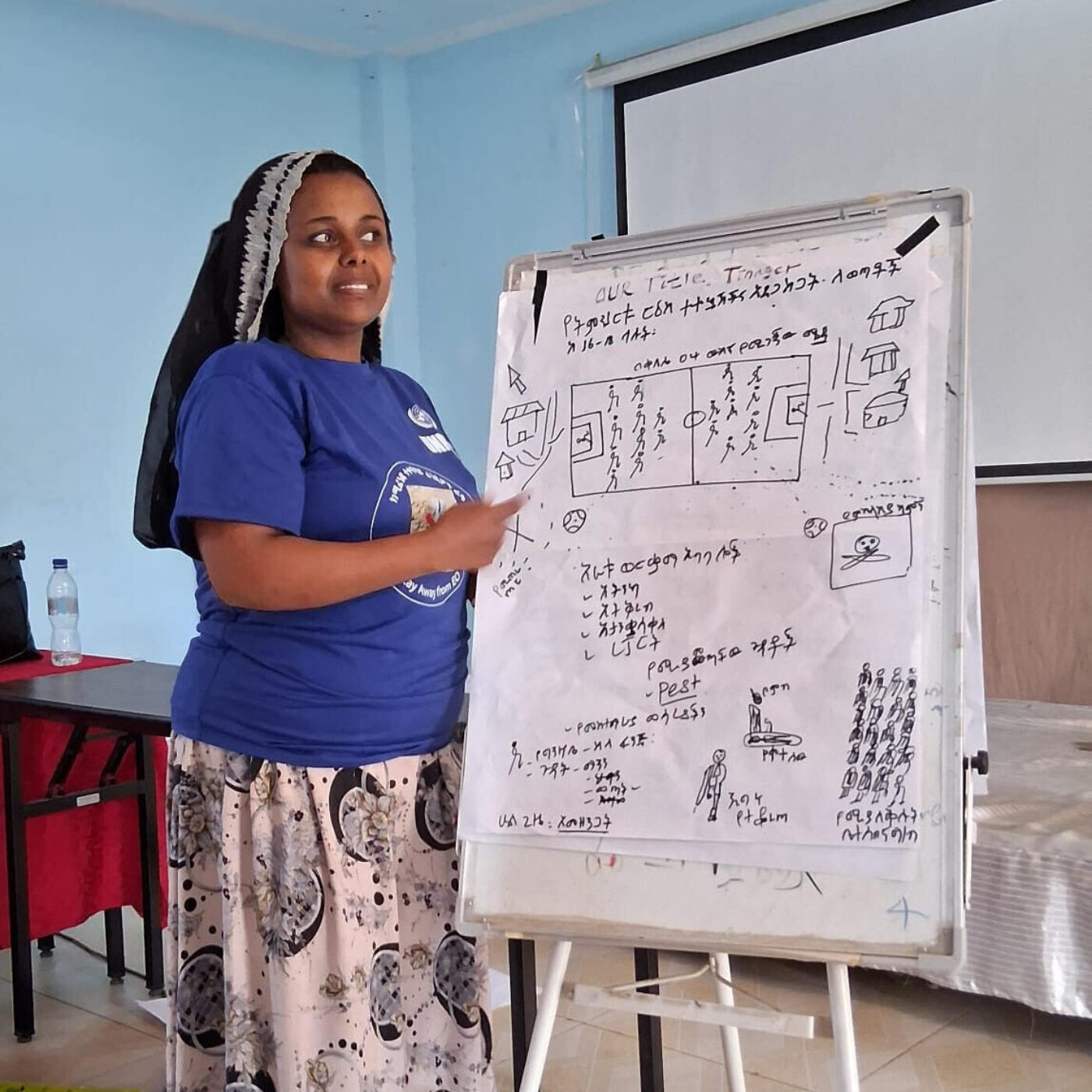
I joined the EORE training because I wanted to protect my community. Now I understand how to identify risks and keep our families safe. When I return, I will continue to educate people and follow up on how they protect themselves.
Chuchu Belay, a school representative, shares this sense of duty and has a clear plan to scale the training. “I was very excited to be invited. I learned so much and already planned how to teach others,” Chuchu says. “I will start with my own children, then the students in my school...I plan to reach as many as possible.”
This approach of training local women as leaders and educators is a direct example of Resolution 1325's participation and protection pillars in action, building safety from the ground up.
From mentee to mentor: clearing the path for peace in the Democratic Republic of Congo (DRC)
For Mimi Salisali, who works in mine action with Afrique pour la Lutte Antimines (AFRILAM), a partner of UNOPS in the DRC, the journey into mine action began with curiosity and courage.
“When I first started in 2020, I was often met with skepticism and challenging questions like: ‘Will she really be up to the task’, a common bias in the security sector,” explains Mimi. She chose to answer with actions.
Dedicated to the task, she quickly advanced from an Explosive Ordnance Disposal (EOD) Operator to a Team Assistant. Recognizing her potential, the UNOPS/UNMAS programme supported her to complete advanced training at Center for Humanitarian Demining Training (CPADD) in Benin.
Now serving as an Assistant Team Leader in Goma, Mimi played a crucial role in clearing explosive remnants of war from the Mugunga internally displaced people site in 2023, enabling displaced families to settle safely on cleared land.
As a team leader, I plan and guide our deminers and EOD officers, ensuring that every operation is carried out safely and in full compliance with recognised international standard operating procedures. Every area that is cleared brings hope to displaced families.
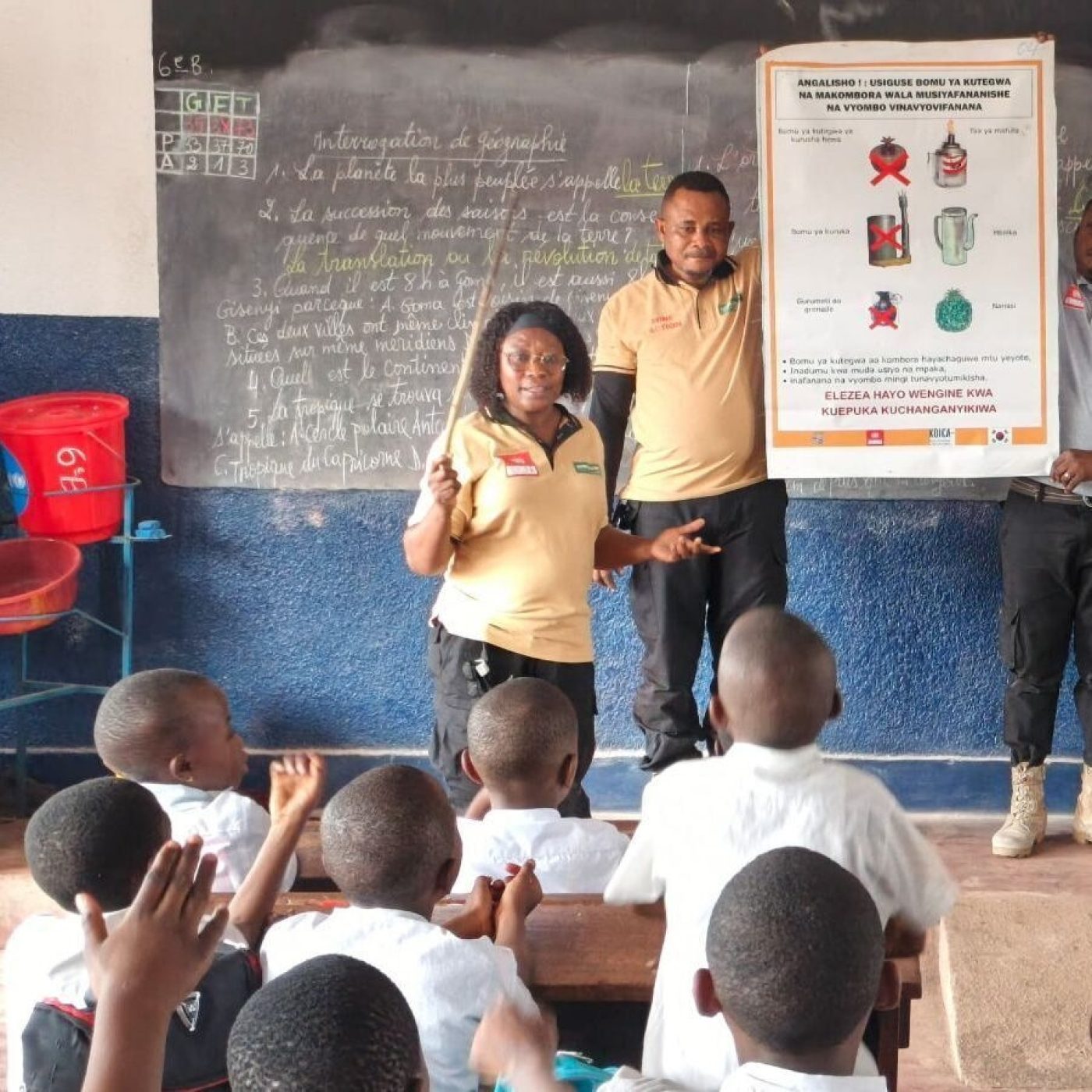
Mimi’s journey from trainee to leader reflects how targeted investment in women’s technical skills creates not only safer environments but stronger, more inclusive teams. Her story is a living example of Resolution 1325 in action.
From beneficiary to trainer: empowering Bedouin women in Palestine (State of)
In the West Bank, the threat of unexploded ordnance and explosive remnants of war is a daily reality for many Bedouin communities. This contamination impedes safe movement, restricts the use of productive land, and adds to the existing pressures of displacement.
To combat this, UNOPS, in collaboration with local partners, launched a project to train volunteers to deliver life-saving messages on the risks of explosive ordnance. Among the 105 volunteers trained, women from Bedouin communities have become uniquely powerful and trusted messengers.
Their important position within these communities ensures that crucial safety information reaches everyone – children, parents, and community leaders – across the northern West Bank and Jordan Valley.
Dania Ghunaim, a volunteer trained by the project, found the training reshaped her understanding of both safety and leadership. She now delivers explosive ordnance risk education (EORE) to her community, particularly children. She recalled a session where children actively engaged with child-friendly messaging, learning to recognize, avoid and report explosive items. When she asked them why this was important, their response was: "To protect ourselves!"
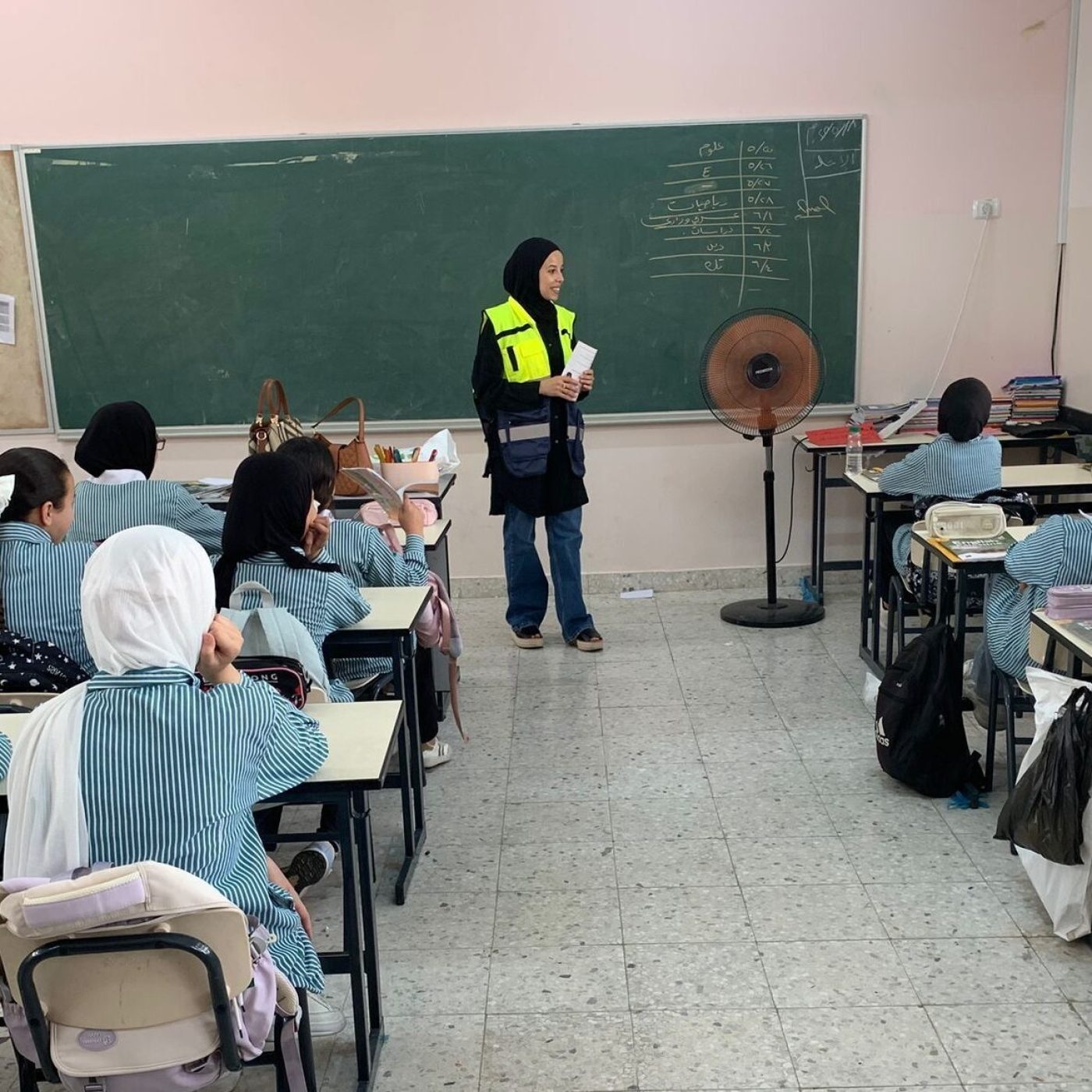
The training I received has expanded my understanding of the threat of explosive ordnance [...] and provided me with the necessary skills to deliver EORE messages to the community, particularly children.
By empowering local women like Dania to become leaders in safety education, the initiative directly supports the protection and participation pillars of Resolution 1325, building resilience from within the community.







